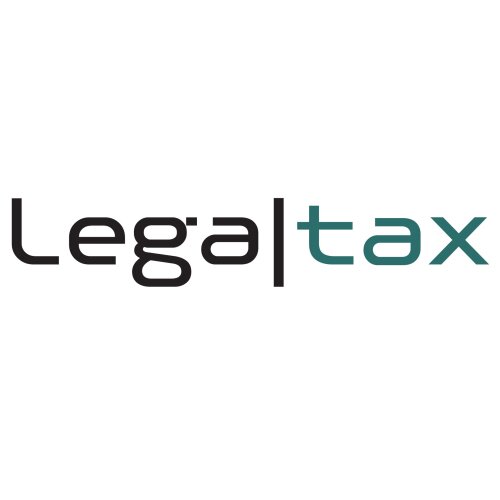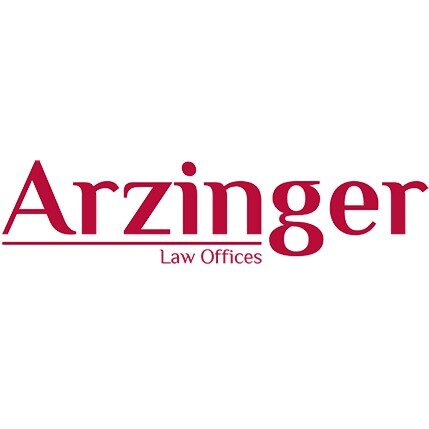Best Restructuring & Insolvency Lawyers in Belarus
Share your needs with us, get contacted by law firms.
Free. Takes 2 min.
Or refine your search by selecting a city:
List of the best lawyers in Belarus
About Restructuring & Insolvency Law in Belarus
Restructuring and insolvency law in Belarus provides a legal framework for resolving situations where a business or an individual cannot meet their financial obligations. The main goals are to protect the rights of creditors, help debtors recover financially when possible, and provide a systematic approach for distributing assets when recovery is not feasible. The Belarusian approach allows for both voluntary and court-ordered procedures, ensuring a balanced treatment for all involved. The law also aims to minimize negative impacts on the economy and safeguard employment where possible.
Why You May Need a Lawyer
Legal assistance can be crucial when dealing with restructuring and insolvency in Belarus for several reasons. If you are a business owner facing financial distress or struggling with debt repayments, a lawyer can help you understand your options, such as restructuring agreements, debt collection defense, or filing for bankruptcy. Creditors may also need advice on how to recover debts from insolvent debtors. In some cases, issues like asset tracing, negotiations with multiple creditors, or defending against claims require professional legal knowledge. Additionally, the laws and court procedures in Belarus can be complex and subject to frequent changes, making legal support essential for navigating the system and protecting your interests.
Local Laws Overview
Restructuring and insolvency matters in Belarus are primarily regulated by the Economic Insolvency (Bankruptcy) Law of the Republic of Belarus. This law sets out the main procedures, including voluntary and involuntary bankruptcy filings, financial rehabilitation (restructuring) measures, creditor claims, asset distribution, and liability of company managers. The law recognizes several stages, such as monitoring, economic rehabilitation, external management, and liquidation. Court involvement is central to most processes, with the Economic Court taking the lead in approving restructuring or liquidation plans. Some procedures allow out-of-court settlements, particularly in cases of consensual restructuring. Throughout any proceeding, transparency and the equitable treatment of creditors and stakeholders are emphasized.
Frequently Asked Questions
What is the difference between restructuring and insolvency in Belarus?
Restructuring refers to legal measures that help a business or individual reorganize financial obligations to avoid insolvency. Insolvency is the state where a debtor is legally recognized as unable to pay debts as they fall due, often leading to bankruptcy proceedings.
Who can initiate insolvency proceedings in Belarus?
Both debtors and creditors can initiate insolvency proceedings. In some cases, government authorities may also initiate proceedings if public interests are at stake.
What documents are required to file for insolvency?
Key documents include the application to the Economic Court, financial statements, details of creditors and debts, a list of assets, and supporting documentation that proves insolvency or financial difficulties.
Can a company avoid liquidation during insolvency proceedings?
Yes, if the court approves a restructuring or rehabilitation plan that ensures creditor satisfaction and the restoration of solvency, liquidation can be avoided.
How are creditors’ claims prioritized in bankruptcy?
Belarusian law establishes a payment order for creditors, giving priority to secured creditors, employees for unpaid wages, and then unsecured creditors. State claims can receive special consideration in certain circumstances.
Are individuals eligible for bankruptcy in Belarus?
Yes, both companies and individuals can be subject to bankruptcy proceedings in Belarus, though procedures and outcomes may differ.
What is the role of an insolvency manager?
The insolvency manager is appointed by the court to oversee the bankruptcy process, safeguard assets, evaluate claims, and manage liquidation or restructuring.
Can out-of-court restructuring be used in Belarus?
Yes, Belarusian law allows for out-of-court agreements between debtors and creditors as a form of restructuring, provided all relevant parties agree.
What are the legal consequences for company directors during insolvency?
Directors can be held personally liable for unlawful actions leading to insolvency, such as fraud, mismanagement, or concealing assets.
Is cross-border insolvency recognized in Belarus?
Belarusian law offers some mechanisms for handling insolvency with international aspects, but cross-border insolvency recognition and cooperation can be limited, requiring careful legal consideration.
Additional Resources
If you need more information or support regarding restructuring and insolvency in Belarus, consider reaching out to the following:
- The Ministry of Justice of the Republic of Belarus - Offers general legal information and guidance. - The Economic Court of the Republic of Belarus - Handles bankruptcy and insolvency proceedings. - Belarusian Republican Union of Lawyers - Professional legal association offering referrals. - State Committee on Property - Provides information on company assets in bankruptcy cases. - Association of Receivers and Insolvency Managers in Belarus - Professional body for insolvency practitioners.
Next Steps
If you believe that you or your business may be facing financial difficulties, early action is important. Gather all relevant financial documents and seek a qualified Belarusian lawyer who specializes in restructuring and insolvency. A legal expert can assess your circumstances, explain your rights and obligations, and recommend tailored solutions, whether through restructuring, settlement, or, if necessary, formal insolvency proceedings. Consider scheduling a consultation to discuss your next moves. Prompt, informed decision-making can help minimize risks and improve outcomes for all parties involved.
Lawzana helps you find the best lawyers and law firms in Belarus through a curated and pre-screened list of qualified legal professionals. Our platform offers rankings and detailed profiles of attorneys and law firms, allowing you to compare based on practice areas, including Restructuring & Insolvency, experience, and client feedback.
Each profile includes a description of the firm's areas of practice, client reviews, team members and partners, year of establishment, spoken languages, office locations, contact information, social media presence, and any published articles or resources. Most firms on our platform speak English and are experienced in both local and international legal matters.
Get a quote from top-rated law firms in Belarus — quickly, securely, and without unnecessary hassle.
Disclaimer:
The information provided on this page is for general informational purposes only and does not constitute legal advice. While we strive to ensure the accuracy and relevance of the content, legal information may change over time, and interpretations of the law can vary. You should always consult with a qualified legal professional for advice specific to your situation.
We disclaim all liability for actions taken or not taken based on the content of this page. If you believe any information is incorrect or outdated, please contact us, and we will review and update it where appropriate.
Browse restructuring & insolvency law firms by city in Belarus
Refine your search by selecting a city.















